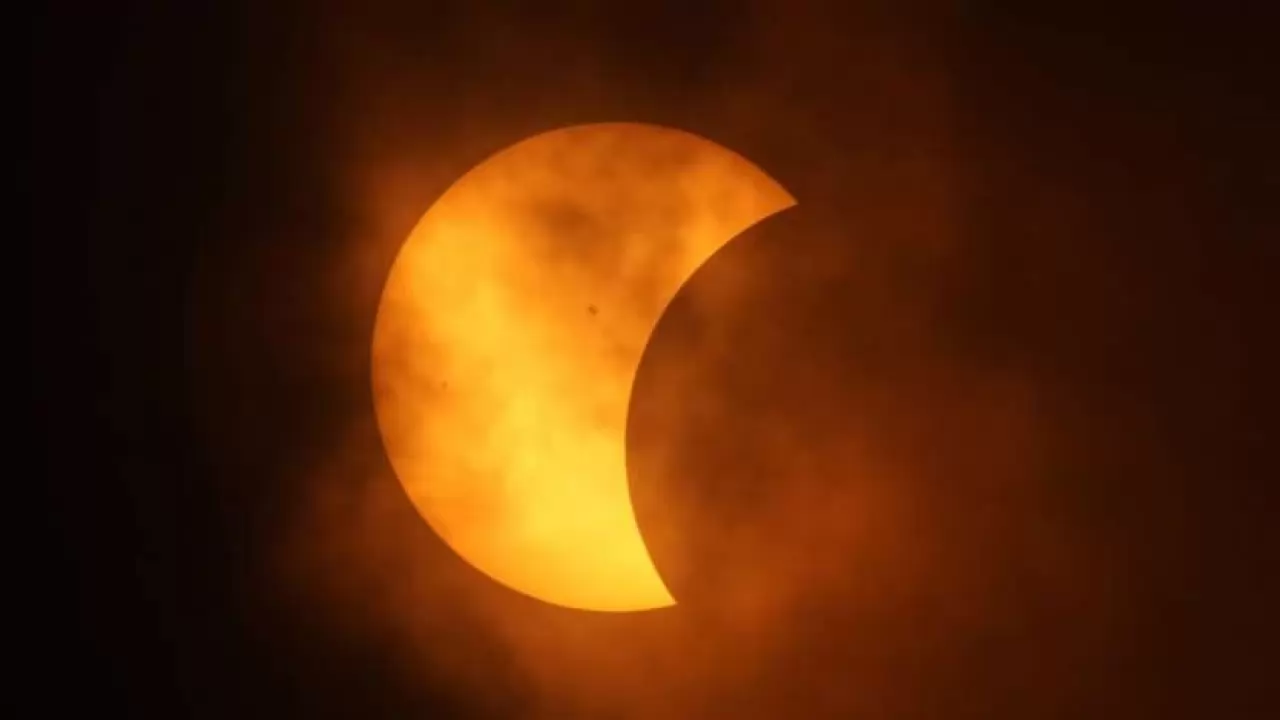
Amidst the aftermath of the Total Solar Eclipse, a surge of concern has gripped the online sphere as searches for "Eyes Hurt" witnessed a significant uptick. The celestial event, undoubtedly a rare spectacle for many, has led to discussions revolving around potential eye damage, especially with the market flooded with counterfeit glasses.
While thousands were determined not to miss the opportunity to witness the eclipse, the risk of eye strain and injury has become a widely discussed topic. Here's a comprehensive guide to recognizing signs of eye discomfort or injury post-eclipse and the steps to take if experiencing discomfort or vision changes.
Following the celestial phenomenon on April 8, where millions gathered across America to witness the event, reports emerged of individuals experiencing eye discomfort post-eclipse, including symptoms like redness, itching, and pain. This has understandably raised concerns among some who fear they may have inadvertently harmed their eyes while observing the eclipse.
As a preventive measure, NASA had earlier emphasized the use of lab-tested glasses for eclipse viewing. However, reports indicate that the issue of fake glasses has already spread. In response, the American Academy of Ophthalmology has issued a list of symptoms to watch out for in the days following the eclipse, ensuring individuals can take necessary precautions to maintain eye safety.
Experts advise being vigilant about signs and symptoms of “solar retinopathy” or Dyschromatopsia, a condition where light-induced damage affects the retina. Symptoms may range from mild to severe headaches, blurred vision, central blind spots in one or both eyes, increased light sensitivity, distorted vision, to changes in color perception. While these symptoms may not manifest immediately, they could develop gradually over time.
Visual symptoms typically appear within six to 12 hours post-exposure, although some individuals may experience them sooner. If discomfort persists, experts recommend consulting an eye doctor or ophthalmologist promptly. The American Academy of Ophthalmology notes that eclipse-related eye damage usually does not cause immediate pain due to the lack of pain nerves in the retina. Instead, visual symptoms become noticeable within four to six hours, with some cases showing symptoms after 12 hours.
Medical experts clarify that there is no specific treatment for solar retinopathy, and recovery varies among individuals. While some may recover within three to six months, others may face the risk of permanent vision loss in the form of a small blind spot or distortion. Despite the potential risks, it's essential to note that most instances of eye discomfort post-eclipse are temporary, with only a few reported cases of permanent damage so far.





Copyright © 2025 Top Indian News
